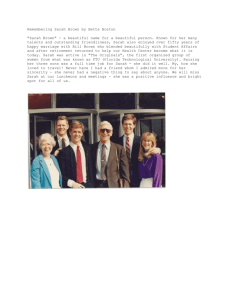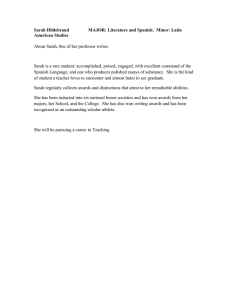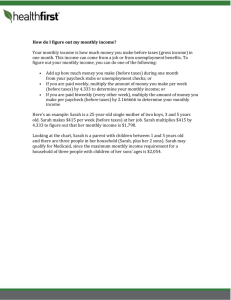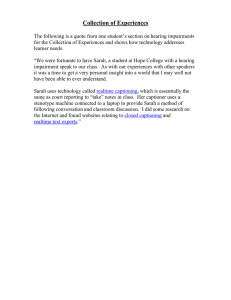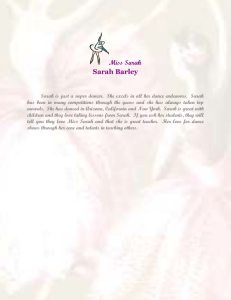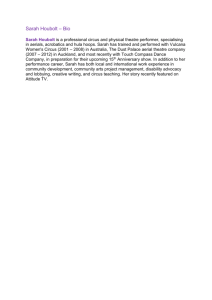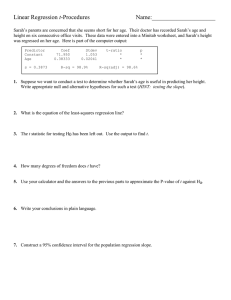Case Study: War, Memory, Trauma On: Early career research and managing a programme of outreach activities. Purpose: Highlight the organising and research skills learned from engaging with schools and
advertisement
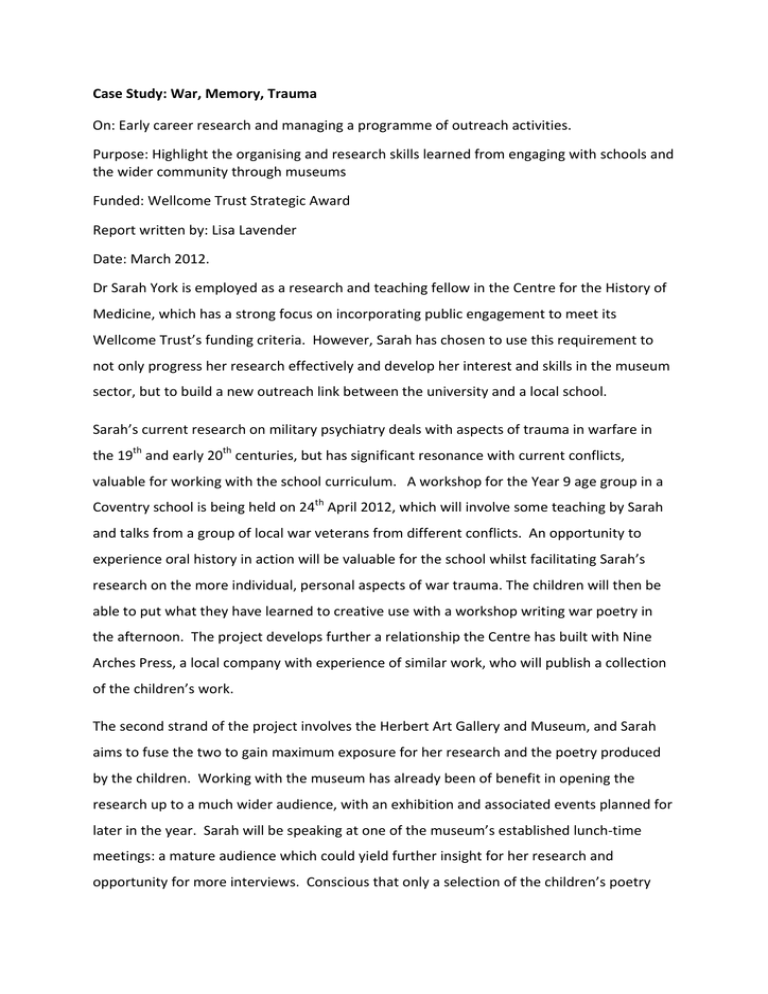
Case Study: War, Memory, Trauma On: Early career research and managing a programme of outreach activities. Purpose: Highlight the organising and research skills learned from engaging with schools and the wider community through museums Funded: Wellcome Trust Strategic Award Report written by: Lisa Lavender Date: March 2012. Dr Sarah York is employed as a research and teaching fellow in the Centre for the History of Medicine, which has a strong focus on incorporating public engagement to meet its Wellcome Trust’s funding criteria. However, Sarah has chosen to use this requirement to not only progress her research effectively and develop her interest and skills in the museum sector, but to build a new outreach link between the university and a local school. Sarah’s current research on military psychiatry deals with aspects of trauma in warfare in the 19th and early 20th centuries, but has significant resonance with current conflicts, valuable for working with the school curriculum. A workshop for the Year 9 age group in a Coventry school is being held on 24th April 2012, which will involve some teaching by Sarah and talks from a group of local war veterans from different conflicts. An opportunity to experience oral history in action will be valuable for the school whilst facilitating Sarah’s research on the more individual, personal aspects of war trauma. The children will then be able to put what they have learned to creative use with a workshop writing war poetry in the afternoon. The project develops further a relationship the Centre has built with Nine Arches Press, a local company with experience of similar work, who will publish a collection of the children’s work. The second strand of the project involves the Herbert Art Gallery and Museum, and Sarah aims to fuse the two to gain maximum exposure for her research and the poetry produced by the children. Working with the museum has already been of benefit in opening the research up to a much wider audience, with an exhibition and associated events planned for later in the year. Sarah will be speaking at one of the museum’s established lunch‐time meetings: a mature audience which could yield further insight for her research and opportunity for more interviews. Conscious that only a selection of the children’s poetry can be published, the links with the museum has established an opportunity to hold an exhibition of their work, a positive boost for all parties. Working with both the school and museum sectors has been a valuable experience in learning how to plan collaborative outreach initiatives, and Laura has some useful advice to offer. In advance of the project, Sarah had concerns about difficulties that may be involved in the CRB process and other issues in working with schools. Instead she found the process straight forward, with the school organised, helpful and experienced in such matters. The Centre has worked with a number of schools before, and whilst it is good to develop existing links, it also benefits the university to expand its connections. Sarah has found that establishing a new relationship has been met with great enthusiasm from the school, grateful that someone new has approached them with a shared interest in both innovative study and community‐based activity. Sarah would strongly advise keeping the focus of a project tight and realistic. Whilst it can be tempting to expand your research or event remit as new ideas come up, expanding plans can soon become unmanageable and the original aims may not be realised. Be realistic with time and resources to ensure you fulfil what you have to achieve to meet funding requirements. Consider from the beginning what evidence of impact you will need to collect and factor this into how you plan activities to ensure you provide evidence before the end. Make sure that any collaborators are aware of what is expected of them in this respect, as well as what you aim to do for them. The Centre’s experience in public engagement funded projects has enabled it to build up a series of models on feedback and impact covering questionnaires, event participation, etc which are useful for getting ahead when planning new projects. Establish relationships with collaborators as early as possible and keep communication going to ensure that plans are progressing on target, everyone understands what is required and there are no nasty surprises as a deadline looms. The key is to get a good balance in your communication, make contact regularly without seeming pushy … a useful ‘people’ skill to learn! The one thing that Sarah would do differently if planning a similar activity is make contact with the school earlier in the planning process: appreciating the differences between the stress points in a school timetable for the year and the university academic year. Similarly this is good advice for working with any external collaborators.
